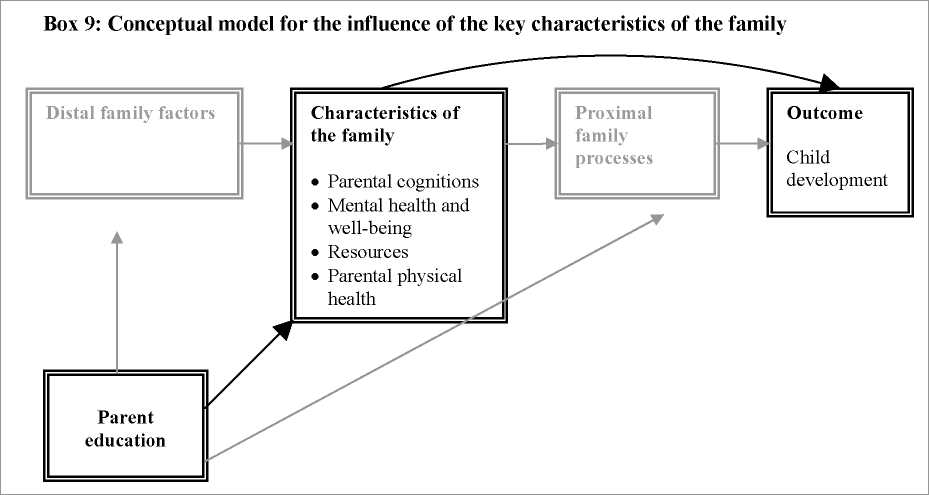Characteristics of the family
4. Characteristics of the family

4.1. Introduction
The previous section explored the associations between prior parental education,
family proximal processes and children’s developmental outcomes. While much of
early development is viewed primarily as a function of the quality of parenting and
the child’s own characteristics, the quality of parenting itself is shaped by broader
factors. We now take a step back from the immediate parent-child relationship and
turn to the characteristics of the family as the arbiters of the context within which
these relationships occur.
In section 3 we noted the importance of other developmental contexts, namely the
neighbourhood, schools and pre-schools. This section, however, focuses solely on the
context of family and on the relative importance of its key characteristics. As before,
for each characteristic, we consider the evidence for:
i. its importance as an influence on children’s development;
ii. an influence of parental education on the characteristic.
Characteristics of the familial context identified here are:
i. Parental cognitions;
ii. Parental well-being and mental health;
iii. Resources;
iv. Parental physical health.
50
More intriguing information
1. The name is absent2. The migration of unskilled youth: Is there any wage gain?
3. The name is absent
4. The name is absent
5. The name is absent
6. Types of Tax Concessions for Promoting Investment in Free Economic and Trade Areas
7. TOWARDS THE ZERO ACCIDENT GOAL: ASSISTING THE FIRST OFFICER MONITOR AND CHALLENGE CAPTAIN ERRORS
8. Citizenship
9. AGRICULTURAL TRADE LIBERALIZATION UNDER NAFTA: REPORTING ON THE REPORT CARD
10. Auctions in an outcome-based payment scheme to reward ecological services in agriculture – Conception, implementation and results